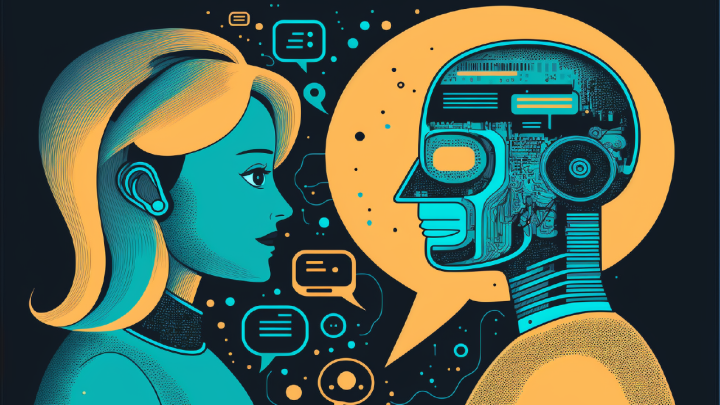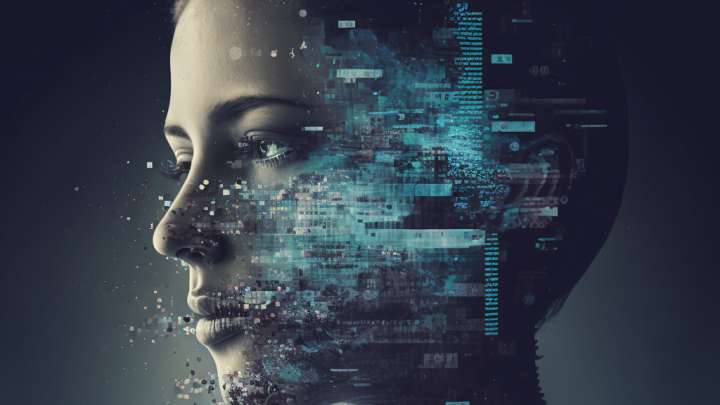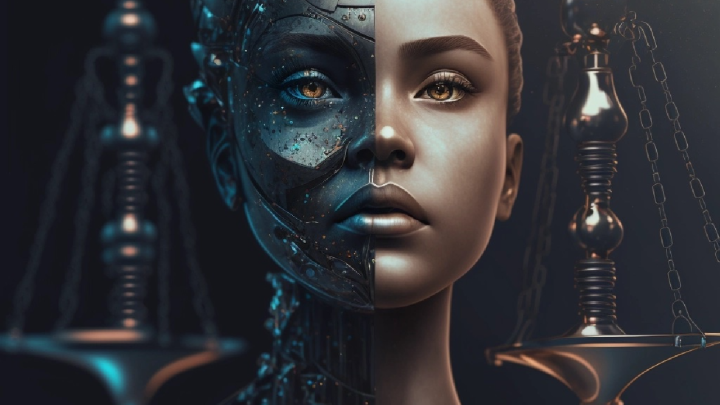No lecture. No readings. Just Conversation.
In the Spring, we'll start a new series held every other Wednesday at the Ahmanson Lab. Our Conversations series is an opportunity for students across disciplines to meet and talk about timely and engaging technology-related topics.
Come share your thoughts with us!
Free pizza is provided.
-
 TwitterJanuary 25, 2023 | 3:00pm - 4:00pmTwitter has had a significant impact on the way people communicate and share information. It has enabled individuals and organizations to reach large audiences quickly and easily and has become an important tool for networking and building communities. However, since Elon Musk’s acquisition of the platform in October 2022, its policies and social impact have received renewed scrutiny.
TwitterJanuary 25, 2023 | 3:00pm - 4:00pmTwitter has had a significant impact on the way people communicate and share information. It has enabled individuals and organizations to reach large audiences quickly and easily and has become an important tool for networking and building communities. However, since Elon Musk’s acquisition of the platform in October 2022, its policies and social impact have received renewed scrutiny.
Areas of conversation may include: What are Twitter’s obligations towards moderating forms of harmful speech? Does the platform's promotion of engaging content lead to the amplification of disturbing material and fringe views? How much of Twitter is made up of chatbots and is this a problem? -
 ChatGPTFebruary 8, 2023 | 3:00pm - 4:00pmThe New York Times has called ChatGPT, a large language model launched by OpenAI in December 2022, “quite simply, the best artificial intelligence chatbot ever released to the general public.” Chatgpt is capable of, among other tasks, writing expert-level essays, generating near-pristine computer code, debugging code, summarizing complex ideas, and writing poetry.
ChatGPTFebruary 8, 2023 | 3:00pm - 4:00pmThe New York Times has called ChatGPT, a large language model launched by OpenAI in December 2022, “quite simply, the best artificial intelligence chatbot ever released to the general public.” Chatgpt is capable of, among other tasks, writing expert-level essays, generating near-pristine computer code, debugging code, summarizing complex ideas, and writing poetry.
Areas of conversation may include: How will this change how people search for, synthesize, and communicate information? How far does the technological leap represented by ChatGPT get us towards artificial general intelligence (AGI)? Which industries is this technology most likely to disrupt? -
 TranshumanismFebruary 22, 2023 | 3:00pm - 4:00pmTranshumanism is a philosophical movement that explores the potential for human beings to evolve beyond their current physical and mental limitations through the use of technology – from tech-driven anti-aging techniques to codifying human consciousness for download into computational hardware.
TranshumanismFebruary 22, 2023 | 3:00pm - 4:00pmTranshumanism is a philosophical movement that explores the potential for human beings to evolve beyond their current physical and mental limitations through the use of technology – from tech-driven anti-aging techniques to codifying human consciousness for download into computational hardware.
Areas of conversation may include: Which parts of the human experience are likely to be reproducible as computer code? What is the potential for using technology to extend the human lifespan? What are the ethical implications of using technology to enhance human abilities, and in particular, equity of access to such technologies?
-
 AI EthicsMarch 8, 2023 | 3:00pm - 4:00pmAI ethics refers to the ethical considerations that arise from the development and use of artificial intelligence (AI) technology. As AI continues to advance and to play an increasing role in areas from healthcare to education and criminal justice, ethical implications of AI will need to be carefully considered.
AI EthicsMarch 8, 2023 | 3:00pm - 4:00pmAI ethics refers to the ethical considerations that arise from the development and use of artificial intelligence (AI) technology. As AI continues to advance and to play an increasing role in areas from healthcare to education and criminal justice, ethical implications of AI will need to be carefully considered.
Areas of conversation may include: How do we ensure that AI is used in a way that is fair, equitable, and respects the dignity of all individuals? How do we prevent current AI systems, which are trained on existing data, from perpetuating and amplifying social biases by engaging in algorithmically discriminatory practices? -
 The MetaverseMarch 22, 2023 | 3:00pm - 4:00pmThe Metaverse is being developed and promoted by a variety of technology companies and researchers.
The MetaverseMarch 22, 2023 | 3:00pm - 4:00pmThe Metaverse is being developed and promoted by a variety of technology companies and researchers.
Areas of conversation may include: Will the Metaverse create new opportunities for social interaction and collaboration or lead to isolation and disconnection? How will the Metaverse impact issues of identity, privacy, and security? How might people be able to create multiple virtual identities, and how will their online and offline identities will be linked? How may the Metaverse lead to greater inequality, with some individuals and communities having greater access to and control over virtual resources than others? -
 Living in a SimulationMarch 29, 2023 | 3:00pm - 4:00pmThe topic of whether or not we are living in a simulation has garnered a lot of attention in recent years. Scientists and philosophers have weighed in on the matter, with some arguing that it is statistically likely that we are living in a computer-generated reality.
Living in a SimulationMarch 29, 2023 | 3:00pm - 4:00pmThe topic of whether or not we are living in a simulation has garnered a lot of attention in recent years. Scientists and philosophers have weighed in on the matter, with some arguing that it is statistically likely that we are living in a computer-generated reality.
Areas of conversation may include: What are the arguments for and against the idea that our reality is a simulation? What are the implications of this idea and what could it mean for our understanding of the universe and our place within it? What are the ways in which this concept has been explored in popular culture, such as in the film "The Matrix"?
-
 AI Bill of RightsApril 12, 2023 | 3:00pm - 4:00pmIn October of 2022, the Office of Science and Technology Policy released The White House Blueprint for an AI Bill of Rights. The Bill of Rights is a set of guidelines that outline the rights and responsibilities of artificial intelligence (AI) systems and their creators—from issues of data privacy to algorithmic decision-making systems for financial lending and court-ordered probation. Areas of conversation may include: What are the potential impacts of AI on society and the economy? What role should the government play in regulating the use of AI? What are the ethical considerations of AI development, particularly in industries such as healthcare, education, and criminal justice?
AI Bill of RightsApril 12, 2023 | 3:00pm - 4:00pmIn October of 2022, the Office of Science and Technology Policy released The White House Blueprint for an AI Bill of Rights. The Bill of Rights is a set of guidelines that outline the rights and responsibilities of artificial intelligence (AI) systems and their creators—from issues of data privacy to algorithmic decision-making systems for financial lending and court-ordered probation. Areas of conversation may include: What are the potential impacts of AI on society and the economy? What role should the government play in regulating the use of AI? What are the ethical considerations of AI development, particularly in industries such as healthcare, education, and criminal justice? -
 Post-TruthApril 26, 2023 | 3:00pm - 4:00pmThe notion of a "post-truth" world has gained significant traction in recent years, with many people pointing to the proliferation of fake news and misinformation as evidence that we are now living in a time where objective facts are less influential in shaping public opinion. Areas of conversation may include: How do we combat the increasing difficulty of distinguishing between legitimate news sources and those that are deliberately trying to mislead? Are people, with less agreed upon evidence to consider, more likely to base decisions on emotions and personal beliefs? What is the potential role of artificial intelligence-powered text and image generators in the dissemination of disinformation?
Post-TruthApril 26, 2023 | 3:00pm - 4:00pmThe notion of a "post-truth" world has gained significant traction in recent years, with many people pointing to the proliferation of fake news and misinformation as evidence that we are now living in a time where objective facts are less influential in shaping public opinion. Areas of conversation may include: How do we combat the increasing difficulty of distinguishing between legitimate news sources and those that are deliberately trying to mislead? Are people, with less agreed upon evidence to consider, more likely to base decisions on emotions and personal beliefs? What is the potential role of artificial intelligence-powered text and image generators in the dissemination of disinformation? -